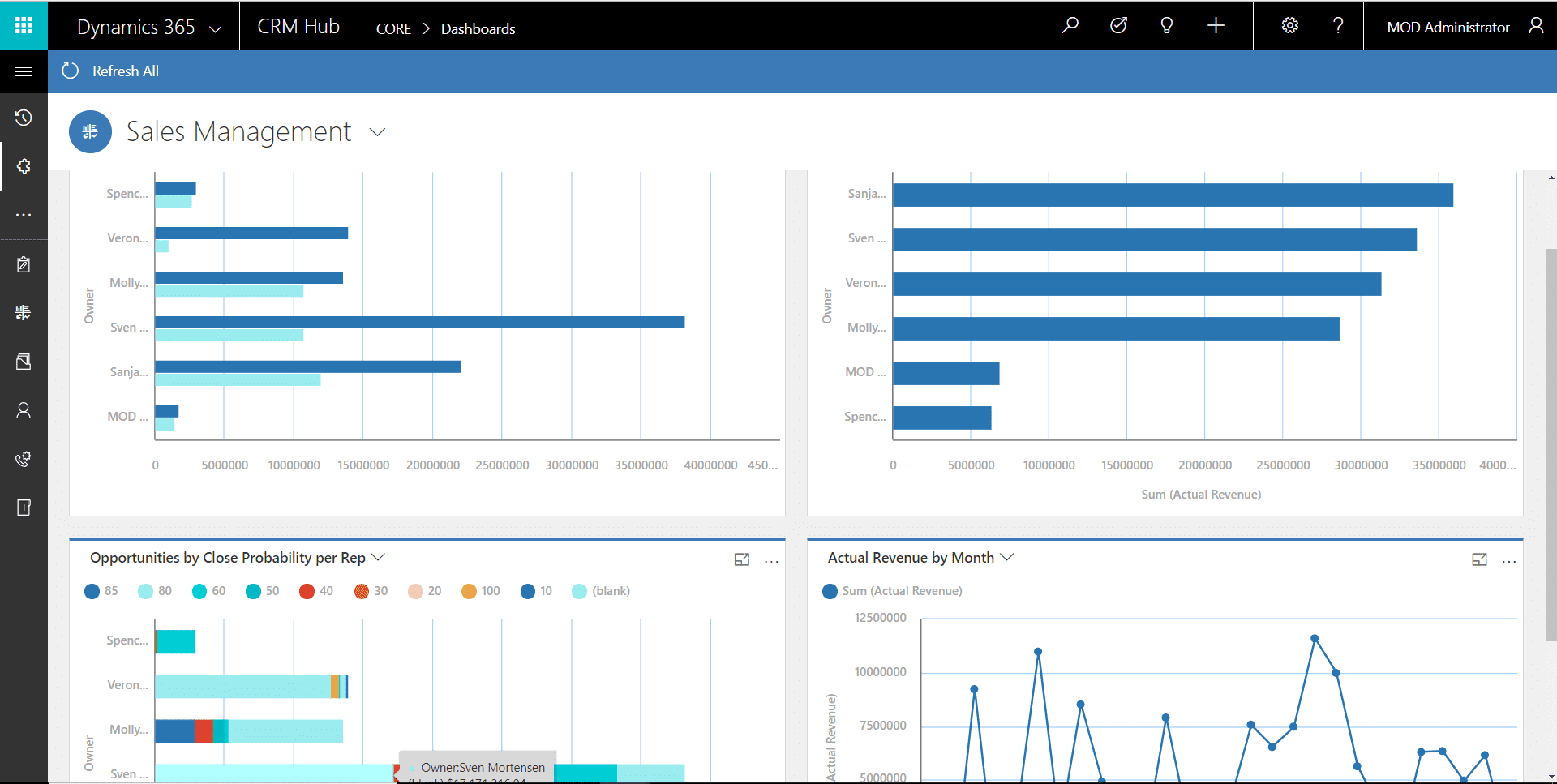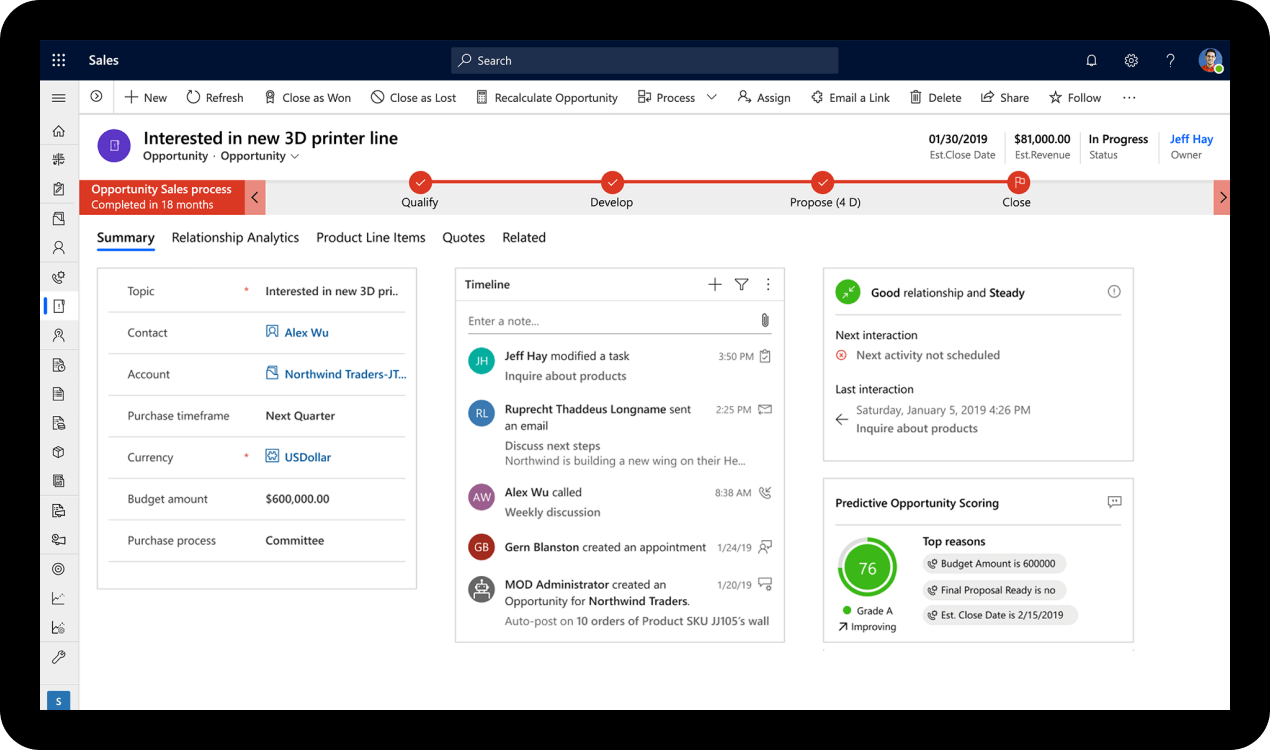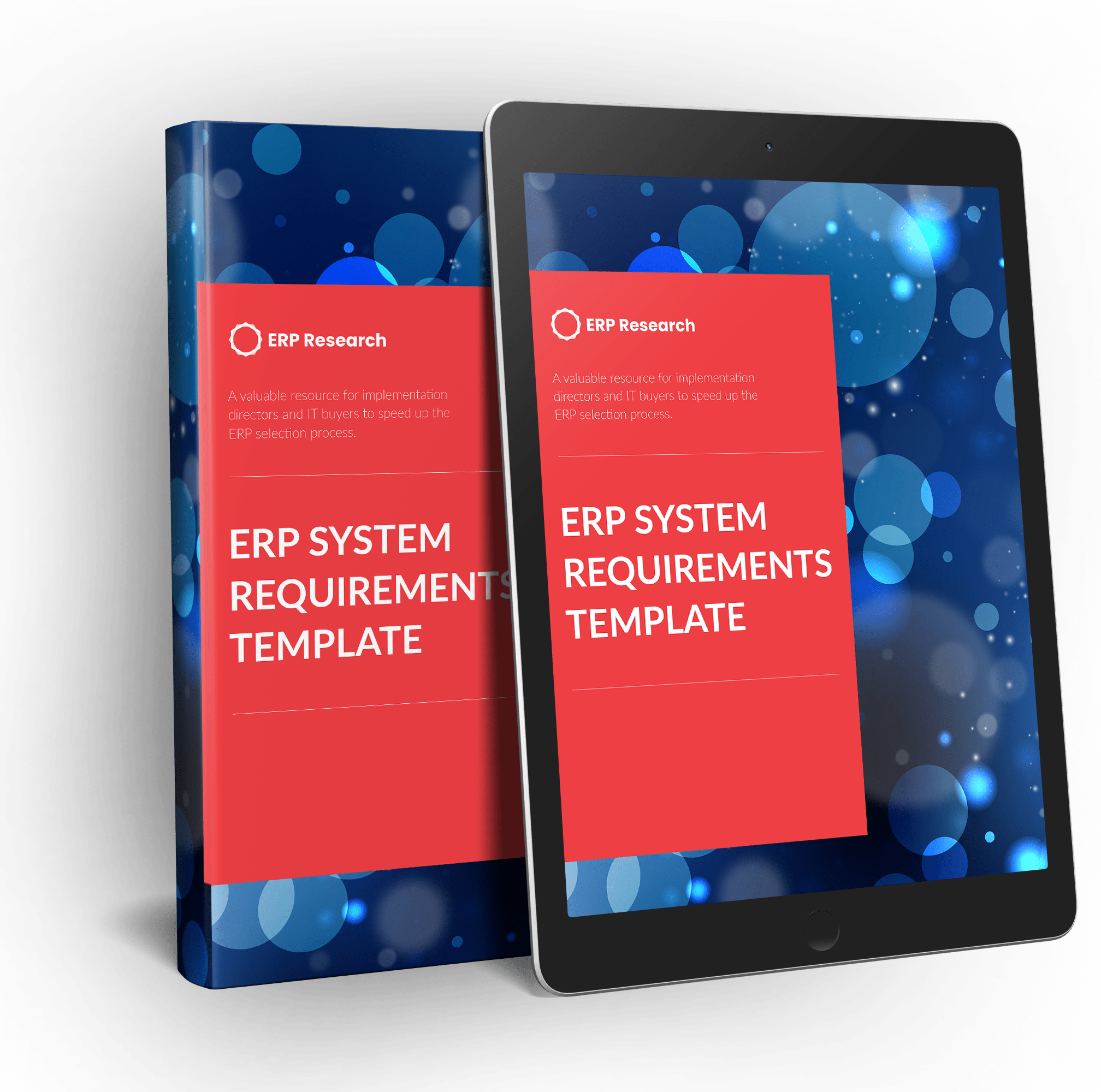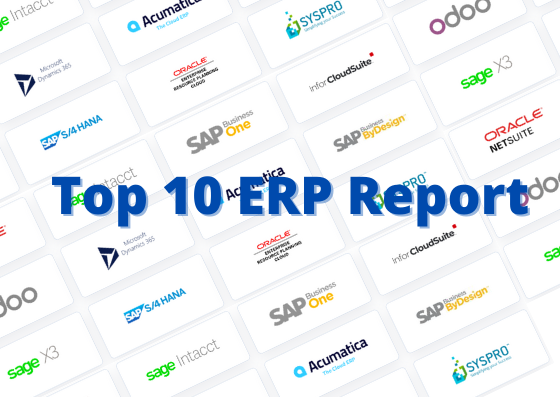
ERP Software Analysis
Microsoft Dynamics 365 Supply Chain Management Module
Microsoft Dynamics 365 Supply Chain Management Module Overview
Microsoft Dynamics 365 Supply Chain Management is a comprehensive solution designed to help businesses streamline their end-to-end supply chain processes. This module offers a wide range of features and capabilities that enable organizations to manage their supply chains effectively and efficiently. Here, we explore these features and capabilities in more detail:
- Procurement and Sourcing: Dynamics 365 Supply Chain Management simplifies procurement and sourcing processes by automating vendor selection, purchase order creation, and approval workflows. The module supports direct and indirect procurement, request for quotation (RFQ) management, and vendor performance evaluation, ensuring businesses maintain healthy supplier relationships.
- Production and Manufacturing: The module offers advanced production planning and manufacturing capabilities, including bill of materials (BOM) management, production scheduling, and capacity planning. Users can create and manage production orders, monitor work center capacities, and optimize production processes to meet customer demands and reduce lead times.
- Inventory and Warehouse Management: Dynamics 365 Supply Chain Management provides comprehensive inventory and warehouse management features, enabling organizations to maintain accurate records of stock levels, locations, and movements. The module supports multi-location inventory management, inventory forecasting, quality management, and traceability, ensuring efficient stock management and product quality.
- Transportation and Logistics Management: The module streamlines transportation and logistics processes, including carrier selection, route planning, and shipment tracking. Users can manage inbound and outbound shipments, optimize transportation costs, and monitor delivery performance, ensuring timely and cost-effective delivery of products to customers.
- Demand Planning and Forecasting: Dynamics 365 Supply Chain Management offers advanced demand planning and forecasting capabilities, allowing organizations to predict future demand and plan replenishments accordingly. The system uses historical sales data, trends, and seasonality to generate demand forecasts, helping businesses avoid stockouts and overstock situations.
- Sales and Operations Planning (S&OP): The module supports S&OP processes, enabling organizations to balance demand, supply, and financial objectives. Users can create sales forecasts, production plans, and inventory plans, and monitor performance against these plans to optimize supply chain operations and profitability.
- Integration with IoT and AI: Dynamics 365 Supply Chain Management integrates with Internet of Things (IoT) devices and leverages artificial intelligence (AI) technologies to provide real-time insights, predictions, and recommendations. This enables organizations to monitor equipment performance, optimize maintenance schedules, and improve overall operational efficiency.
- Collaboration and Communication: The module facilitates seamless communication and collaboration among supply chain stakeholders, including suppliers, manufacturers, logistics providers, and customers. It integrates with Microsoft Teams, SharePoint, and other collaboration tools, ensuring that everyone stays informed and engaged.
- Reporting and Analytics: Dynamics 365 Supply Chain Management offers powerful reporting and analytics capabilities, providing real-time insights into supply chain performance. Users can create custom reports, dashboards, and key performance indicators (KPIs) to monitor various supply chain metrics. Integration with Power BI enhances the analytical capabilities, allowing for interactive data visualization and advanced reporting.
- Compliance and Risk Management: The module provides tools and features to help organizations comply with industry-specific regulations, manage risks, and ensure product safety. It supports traceability, quality management, and audit trails, enabling businesses to maintain compliance with regulatory requirements and minimize supply chain disruptions.
- Integration and Extensibility: The Supply Chain Management module integrates seamlessly with other Dynamics 365 modules (such as Finance, Sales, and Customer Service), Microsoft products (e.g., Office 365 and Azure), and third-party applications, providing a unified experience across different business applications and enhancing the overall efficiency of the organization.
- Scalability and Performance: Built on the Microsoft Azure cloud platform, Dynamics 365 Supply Chain Management offers organizations the scalability and performance they need to handle large volumes of supply chain data and transactions. The module can easily scale up or down as business requirements change, providing a flexible and cost-effective solution for managing supply chain processes.
- Mobility and Accessibility: Dynamics 365 Supply Chain Management offers a responsive, mobile-friendly user interface, allowing users to access the system from any device and location. With native mobile apps and a web-based interface, users can manage supply chain tasks, access reports, and collaborate with stakeholders on-the-go, ensuring business continuity and improved productivity.
- Sustainability and Environmental Compliance: The module supports sustainability and environmental compliance initiatives, helping organizations track their carbon footprint, energy consumption, and waste generation. Users can monitor the environmental impact of their supply chain operations and implement strategies to reduce emissions, conserve resources, and minimize waste.
- Customer and Vendor Portals: Dynamics 365 Supply Chain Management provides customer and vendor portals, enabling businesses to share supply chain information with their partners and customers. These portals facilitate communication, order management, and shipment tracking, improving collaboration and customer satisfaction.





